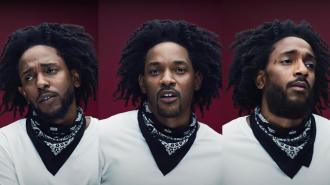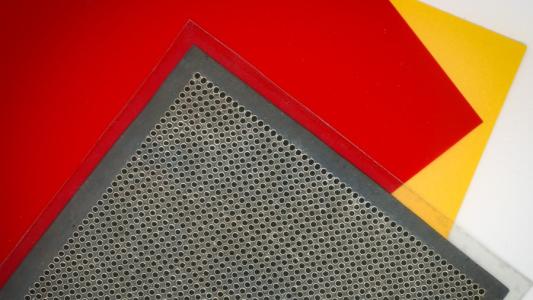Rapper Kendrick Lamar’s new music video for the song “The Heart Part 5” drives home the idea that — in the right hands — deepfake tech can be used to create powerful art.
Deepfakes 101: Deepfakes are videos that use AI to make it look like a real person is doing or saying something they didn’t actually do or say.
An estimated 90-95% of deepfakes online are pornographic — usually a famous woman’s face is placed on the body of a porn actress — but we’ve also seen political deepfakes, such as one in which Ukrainian President Volodymyr Zelensky appears to surrender to Russia.
In the hands of someone like Kendrick Lamar, deepfake tech can be an intriguing new medium of artistic expression.
The idea: These types of videos could pose real risks to society — if they’re believed to be real, they can ruin women’s lives or create political instability — but deepfake tech doesn’t have to be used nefariously.
In 2020, “South Park” creators Trey Parker and Matt Stone founded Deep Voodoo, a studio of animators and deepfake artists, so that they could start incorporating deepfakes into their comedy.
“Before the big scary thing of coronavirus showed up, everyone was so afraid of deepfakes,” Stone told the New York Times in October 2020. “We just wanted to make fun of it because it makes it less scary.”
What’s new? In 2020, Deep Voodoo teamed up with actor/comedian Peter Serafinowicz to create a web series, Sassy Justice, that featured deepfakes of Donald Trump, Al Gore, Mark Zuckerberg, and other celebs.
Now, the studio has found a new collaborator in Lamar.
On May 8, the artist released a music video for his new song “The Heart Part 5.” In the clip, his face morphs into the visages of several famous Black men, including actor Will Smith, rapper Ye (formerly Kanye West), and late basketball great Kobe Bryant.
Deep Voodoo is credited as creating the deepfakes for the video, and the notes below the clip give special thanks to Stone, Parker, and Deep Voodoo.
The bottom line: Like any other technology, deepfakes aren’t inherently bad — in the hands of someone like Lamar, the tech can be an intriguing new medium of artistic expression.
The key is that the viewer knows what they’re seeing isn’t real — no one watching the music video for “The Heart Part 5” actually believes they’re seeing late rapper Nipsey Hussle or notorious former footballer OJ Simpson.
The veracity of a deepfake video isn’t always so obvious, though, so it’s essential that we continue to develop detection technologies — and always remember that just because something online looks real, doesn’t mean it is.
We’d love to hear from you! If you have a comment about this article or if you have a tip for a future Freethink story, please email us at [email protected].






